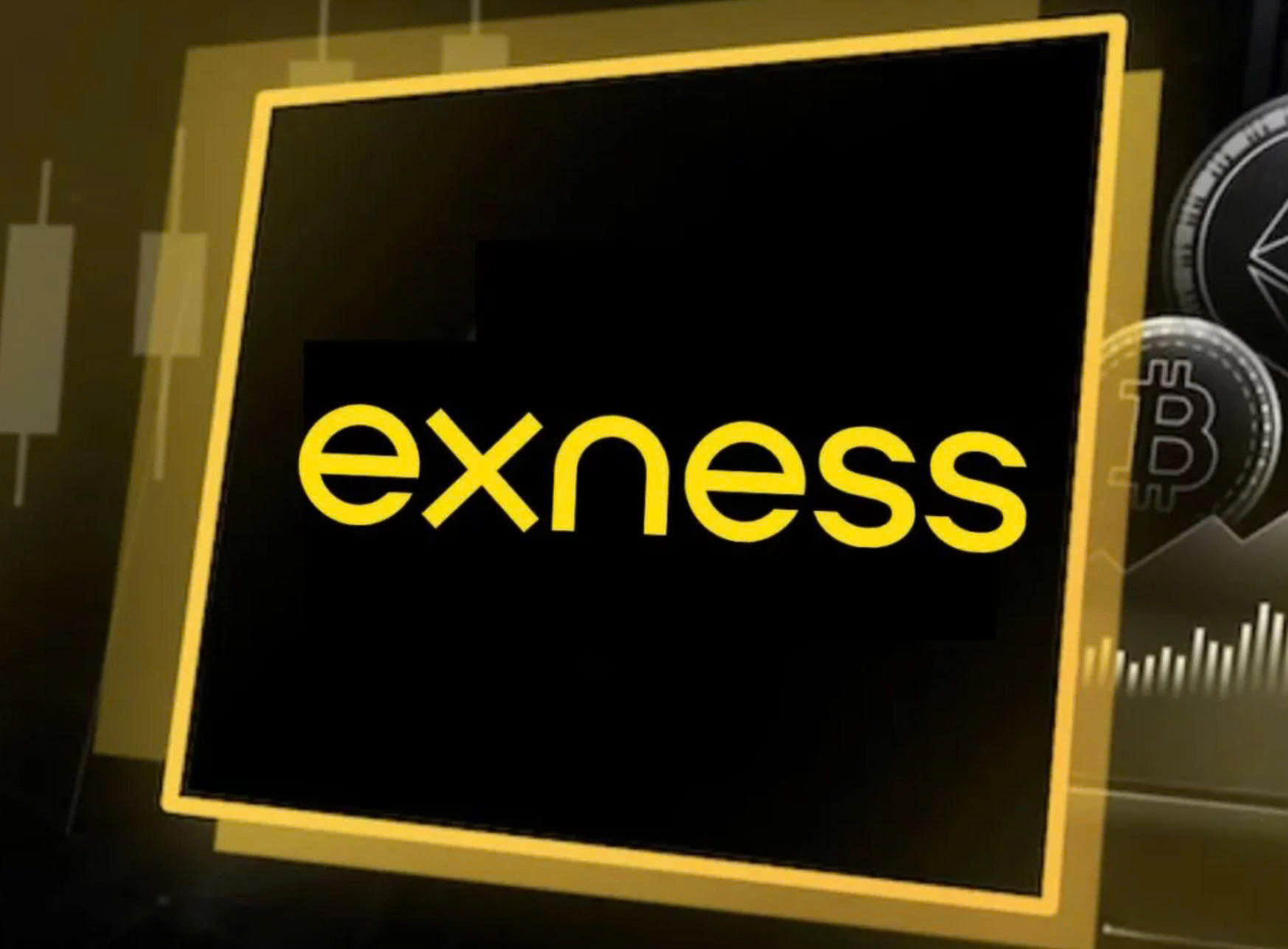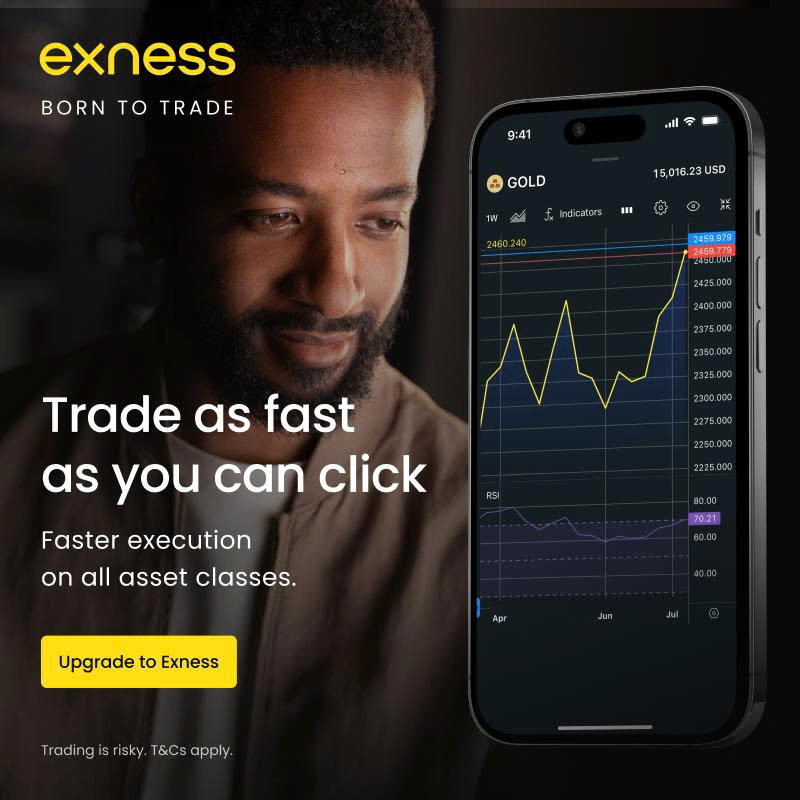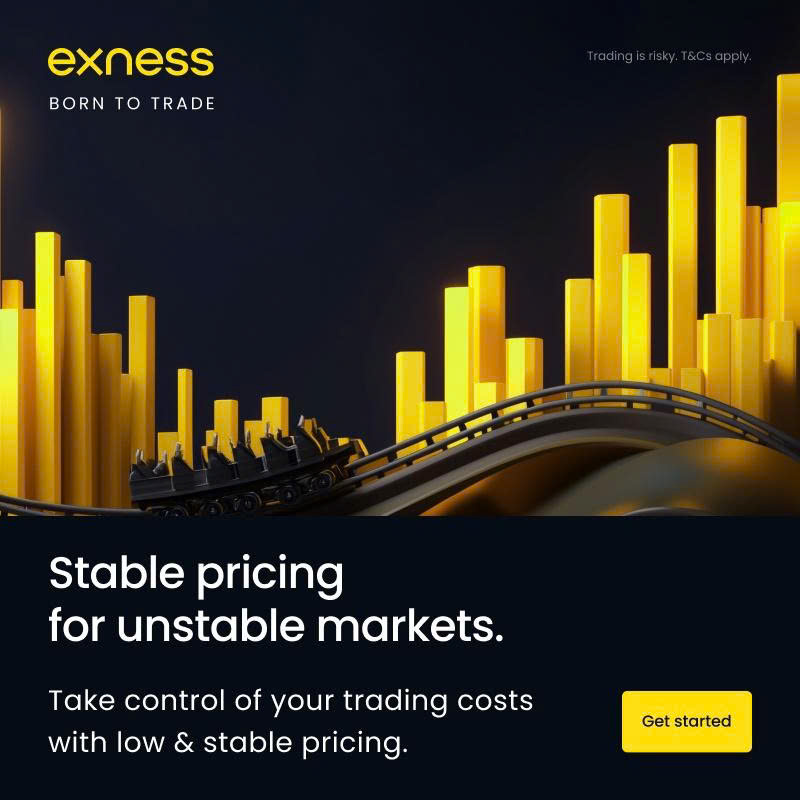
7 minute read
Exness vs RoboForex: Which Forex Broker Should You Choose in 2025?
from Exness, RoboForex
If you’re diving into forex trading and wondering whether Exness or RoboForex is the better broker for you, you’re not alone. Both are big names in the industry, but they cater to different trading styles and needs. In this article, I’ll break down the key differences between Exness and RoboForex— covering regulation, platforms, fees, account types, and more—to help you decide which one fits your trading goals in 2025. Let’s get straight to it!

✅ Trade with Exness now: Open An Account or Visit Brokers 👈
Quick Verdict: Exness or RoboForex?
Exness is your go-to if you prioritize tight spreads, lightning-fast execution, and top-tier regulation. It’s ideal for scalpers, high-frequency traders, and those who value transparency. RoboForex, on the other hand, shines for its flexibility, diverse account types, and access to a broader range of markets like stocks and ETFs. If you’re into copy trading or want more asset variety, RoboForex might edge out.
Your choice depends on your trading style, budget, and priorities. Let’s dive deeper into the details to see which broker suits you best.
1. Regulation and Trustworthiness: Who’s Safer?
When picking a broker, trust is non-negotiable. You want your money in safe hands, right? Both Exness vs RoboForex are regulated, but their credentials differ.
Exness has been around since 2008 and operates under multiple top-tier licenses, including the Financial Conduct Authority (FCA) in the UK, Cyprus Securities and Exchange Commission (CySEC), and the Financial Services Commission (FSC) in Seychelles. They handle over $4 trillion in monthly trading volume and segregate client funds in tier-1 banks, offering negative balance protection. Their transparency—like publicly sharing financial audits—adds an extra layer of trust. If you’re looking for rock-solid regulation, Exness is tough to beat.
RoboForex, established in 2009, is regulated by the Financial Services Commission (FSC) in Belize and is a member of the Financial Commission, which offers up to €20,000 in compensation per client. While Belize’s regulation isn’t as stringent as the FCA or CySEC, RoboForex also segregates client funds and provides negative balance protection. It’s reliable for most traders but doesn’t match Exness’s regulatory firepower.
Winner: Exness, for its stronger regulatory framework and global reach. If safety is your top concern, Exness has the edge.
2. Trading Platforms: Which One Feels Better?
Your trading platform is your command center, so it’s gotta be intuitive and fast. Both brokers offer industry-standard platforms, but their unique tools set them apart.
Exness keeps it sleek with MetaTrader 4 (MT4) and MetaTrader 5 (MT5), which are perfect for forex and CFD traders. They also have the Exness Terminal (a web-based platform with advanced charting) and the Exness Trade App, a mobile-friendly option for trading on the go. Exness’s platforms are optimized for speed, with execution times as low as 0.01 seconds. Their Social Trading feature lets beginners copy trades from pros, and free VPS hosting ensures uninterrupted trading for automated strategies.
RoboForex also supports MT4 and MT5, but they go further with R StocksTrader, a platform tailored for stock and ETF trading with access to over 12,000 instruments. Their CopyFX platform is a standout for copy trading, letting you filter strategies by risk and performance. If you’re into stocks or want a highly customizable experience, RoboForex’s platform variety is a big plus.
Winner: Tie. Exness is better for forex-focused traders who want speed and simplicity. RoboForex wins for stock traders and those who love platform variety.
3. Fees and Spreads: Where’s the Better Deal?
Nobody wants their profits eaten up by fees. Let’s compare the cost of trading with each broker.
Exness is known for ultra-low spreads, especially on their Raw Spread and Zero Accounts, where spreads start at 0.0 pips with a commission of $3.50 per lot per side. Their Standard Account has no commission but slightly higher spreads (from 0.3 pips). Exness’s transparency in pricing and low-cost structure make it a favorite for scalpers and high-volume traders. They also cover deposit and withdrawal fees for most methods, which is a nice touch.
RoboForex offers competitive variable spreads, starting at 0.2 pips on ECN and Prime Accounts, with commissions around $2-$4 per lot depending on the account. Their ProCent and Pro Accounts have no commissions but wider spreads (from 1.3 pips). RoboForex sweetens the deal by covering deposit fees and offering free withdrawals three times a month. Their bonus programs, like up to 120% on deposits, can also boost your trading capital.
Winner: Exness, for its consistently lower spreads and transparent pricing. However, RoboForex’s bonuses and low entry threshold ($10 minimum deposit) make it attractive for budget-conscious traders.

✅ Trade with Exness now: Open An Account or Visit Brokers 👈
4. Account Types: Which Fits Your Style?
Your account type should match your experience and goals. Both brokers offer plenty of options.
Exness has accounts for every level:
Standard Account: No minimum deposit, spreads from 0.3 pips, perfect for beginners.
Raw Spread Account: Spreads from 0.0 pips, $3.50 commission per lot, great for pros.
Zero Account: Zero spreads on major pairs for 95% of the day, $3.50 commission per lot, ideal for scalpers.
RoboForex offers five account types:
ProCent: $10 minimum deposit, micro-lot trading, ideal for testing strategies.
Pro: $10 minimum deposit, no commissions, good for casual traders.
ECN and Prime: Low spreads (from 0.2 pips), $2-$4 commissions, suited for advanced traders.
R StocksTrader: $100 minimum deposit, designed for stock and ETF trading.
Winner: RoboForex, for its broader range of accounts and low entry barriers. Exness is simpler but less varied.
5. Trading Instruments: What Can You Trade?
Diversifying your portfolio? The range of assets matters.
Exness focuses on forex and CFDs, offering over 120 currency pairs, metals, energies, stocks, indices, and cryptocurrencies. While their range is solid, it’s narrower compared to RoboForex.
RoboForex shines here with over 12,000 instruments, including forex, metals, energies, indices, stocks, ETFs, and even soft commodities. Their R StocksTrader platform makes it easy to dive into stock trading, which Exness doesn’t emphasize as much.
Winner: RoboForex, hands-down, for its massive asset selection. If you want to trade beyond forex, RoboForex is the clear choice.
6. Education and Support: Who Helps You Grow?
Learning and support can make or break your trading journey, especially if you’re new.
Exness offers a robust education hub with webinars, video tutorials, market analysis, and trading guides for all levels. Their live webinars provide real-time market insights, and their customer support is top-notch, with 24/7 availability in multiple languages. I was impressed by a story where Exness’s team resolved a trader’s platform glitch within minutes after a tweet—talk about responsive
RoboForex provides basic educational content like articles and video tutorials, best for beginners and intermediates. Their CopyFX platform doubles as a learning tool by letting you follow experienced traders. Support is reliable and available 24/7, but their educational resources aren’t as in-depth as Exness’s.
Winner: Exness, for its comprehensive education and stellar support. RoboForex is solid but doesn’t match Exness’s depth.
7. Copy Trading and Bonuses: Extra Perks?
Both brokers offer copy trading, but their approaches differ.
Exness’s Social Trading platform is user-friendly, letting beginners copy trades from pros with clear metrics like maximum drawdown and monthly returns. It’s great for passive traders.
RoboForex’s CopyFX platform is more customizable, allowing you to filter strategies by risk and performance. They also offer bonuses like up to 120% on deposits and cashback on commissions, which Exness doesn’t provide.
Winner: RoboForex, for its flexible copy trading and generous bonuses.
Final Thoughts: Which Broker Wins?
So, Exness or RoboForex? Here’s the breakdown:
Choose Exness if you’re a forex-focused trader who wants tight spreads, fast execution, and top-tier regulation. It’s perfect for scalpers, high-frequency traders, or anyone who values transparency and safety.
Choose RoboForex if you want a wider range of assets, flexible account types, and copy trading with bonuses. It’s ideal for traders who love variety or are starting with a small budget.
Ultimately, your choice depends on what you value most—low costs and reliability (Exness) or flexibility and asset diversity (RoboForex). Both are solid, so test their demo accounts to see which feels right for you.
✅ Trade with Exness now: Open An Account or Visit Brokers 👈
Read more:

